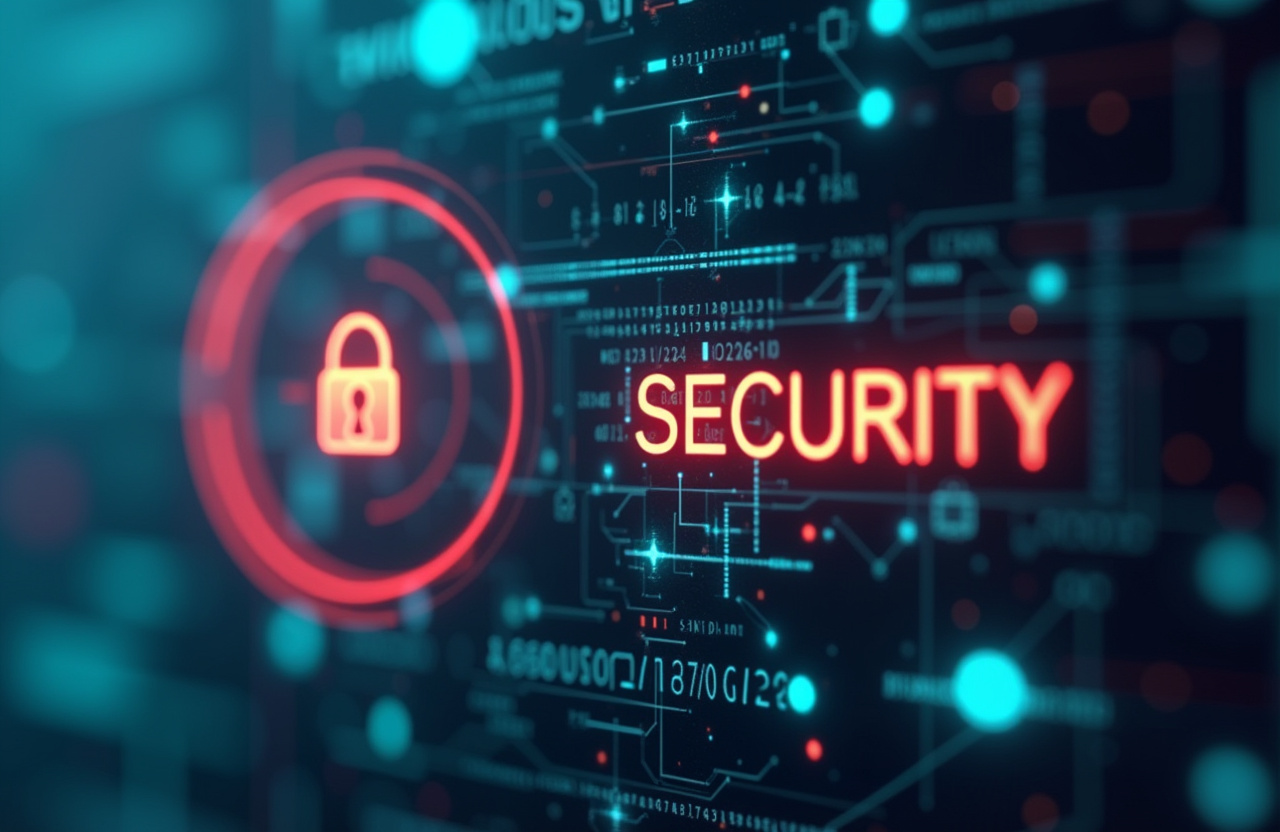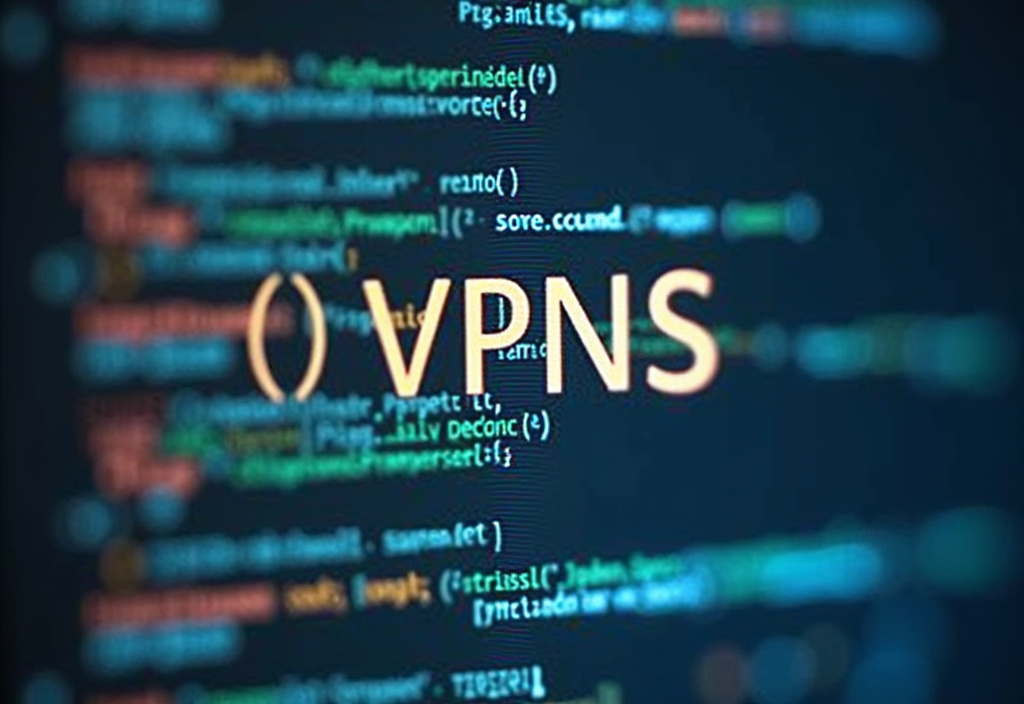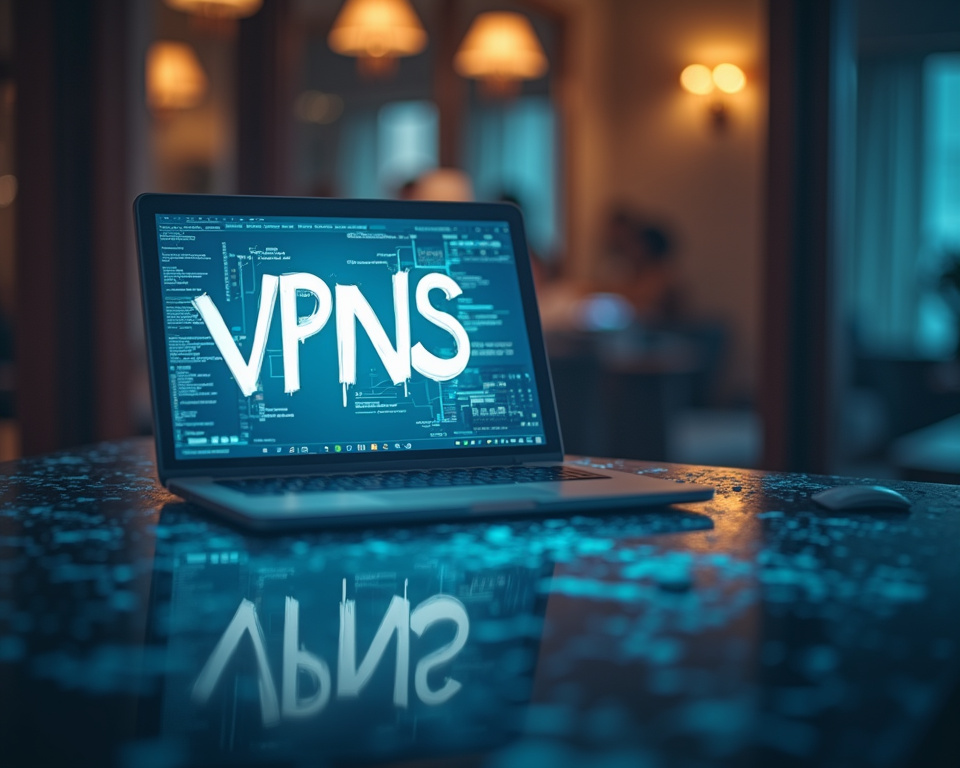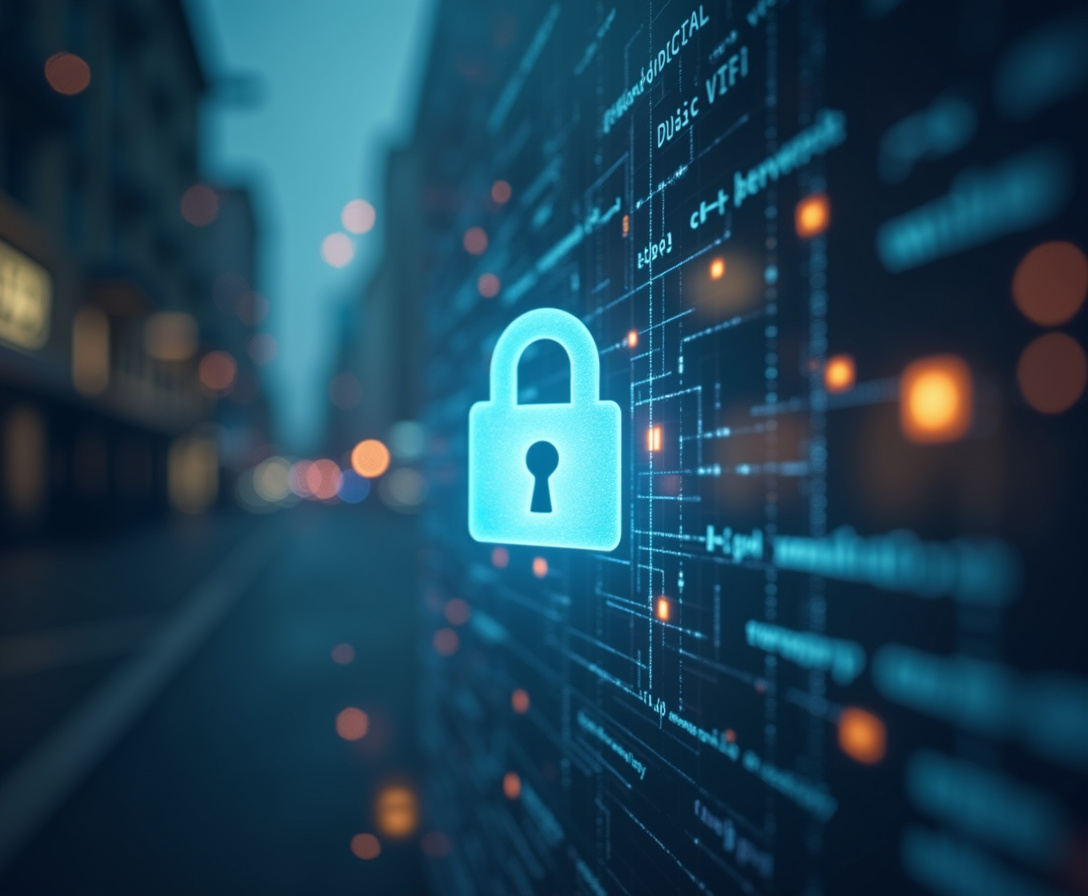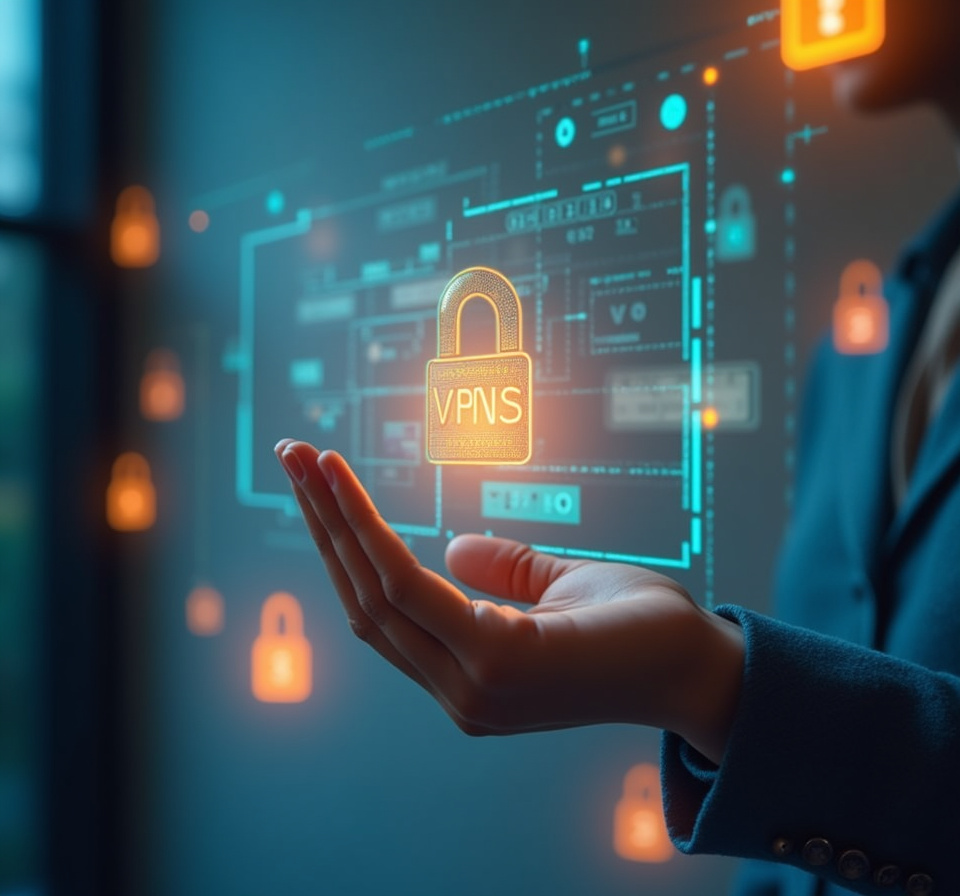VPNs for Hotels: Safeguarding Guest Applications
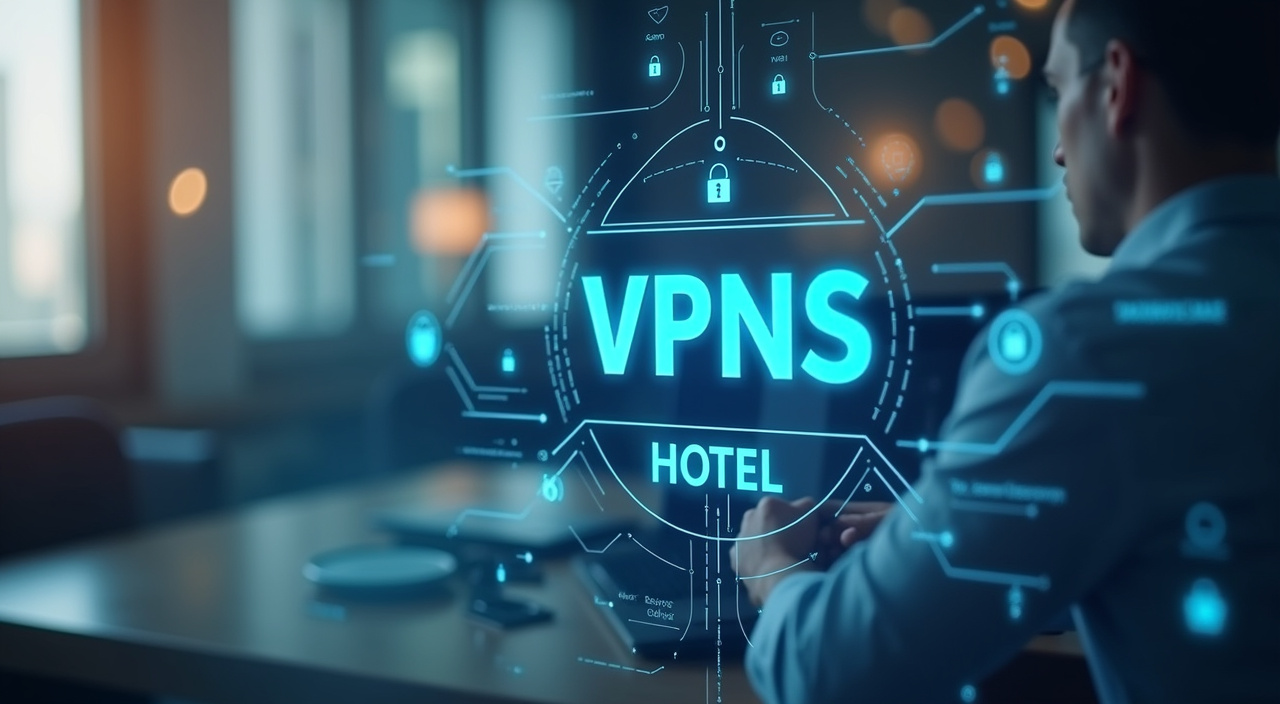
Table of Contents
hotel VPN
In today's interconnected world, the hospitality industry faces an ever-increasing challenge: securing guest data and ensuring the privacy of their online activities. Hotels, as havens for travelers, are entrusted with a wealth of sensitive information, from credit card details to personal preferences. The reliance on guest applications, such as online booking platforms, loyalty programs, and in-room entertainment systems, further amplifies the potential for security breaches and data compromises.
In this environment, the implementation of a robust Virtual Private Network (VPN) solution becomes not just a recommendation, but a necessity. A acts as a protective shield, encrypting data transmitted between the guest's device and the hotel's network, thereby safeguarding against eavesdropping, data theft, and unauthorized access. This proactive approach not only enhances but also builds trust and loyalty, pivotal factors in the competitive hospitality landscape.
The core purpose of this article is to delve deep into how VPNs are not a luxury but a fundamental piece of security architecture for modern hotels, concentrating on the protection of sensitive data processed by the guest-facing applications. The article will explore the potential risks and vulnerabilities that exist within a hotel's network, especially through the use of applications, as well as how a carefully selected and configured VPN can mitigate these risks. The rise of sophisticated cyber threats necessitates a paradigm shift in how hotels approach data protection.
No longer can reliance be placed solely on traditional security measures. A holistic approach that encompasses encryption, secure authentication, and proactive threat detection is paramount. A VPN, as a cornerstone of this strategy, provides a multilayered defense, masking the guest's IP address, encrypting their internet traffic, and routing it through secure servers.
This makes it significantly more difficult for cybercriminals to intercept sensitive data or track online activities. The benefits of a extend beyond mere data protection. It also facilitates secure remote access for staff, enabling them to manage bookings and provide guest support from anywhere in the world.
This flexibility enhances operational efficiency while maintaining the highest standards of data security. The increasingly common 'Bring Your Own Device' (BYOD) trend also adds to the complexity. Guests are connecting an array of devices, often with varying security postures, to the hotel Wi-Fi.
It makes the traditional security measures much more critical and difficult to deal with, since the control over the clients connecting to the hotel's network is almost impossible. A VPN, on the other hand, establishes a secure tunnel, regardless of the state of the device. Furthermore, a VPN can help hotels comply with stringent data privacy regulations, such as GDPR, which mandates the protection of for all individuals within the European Union.
By implementing a VPN, hotels demonstrate their commitment to data security and mitigate the risk of costly fines and reputational damage. The selection of the right VPN solution is crucial. Factors to consider include the level of encryption offered, the number of server locations available, the compatibility with various devices and operating systems, and the availability of technical support.
It is also essential to ensure that the VPN provider has a strict no-logs policy, guaranteeing that guest data is never collected or stored. The selection should also consider the scalability, and the support team provided by the provider. For the applications that deal with financial data, a VPN creates a controlled and encrypted environment, that is not subject to many of the risks of common Internet.
In conclusion, a is an indispensable tool for safeguarding , protecting , enhancing , and enhancing the overall guest experience. By embracing this technology, hotels can stay ahead of the curve in the ever-evolving landscape of cyber threats and build lasting relationships with their discerning clientele. Through secure remote access to hotel resources and protecting every client connecting to the hotel's network, regardless of the security configuration of the client, building trust and loyalty in the competitive hospitality landscape.
guest application security
The cornerstone of any successful hospitality business is trust. Guests entrust hotels with their safety, comfort, and personal information. In return, hotels must prioritize the security and privacy of their guests' data.
This trust is particularly vulnerable when it comes to guest applications, which often handle sensitive information such as credit card details, booking confirmations, and personal preferences. A breach in can have devastating consequences, leading to financial losses, reputational damage, and legal liabilities. A robust VPN solution offers a proactive defense against these threats, providing an essential layer of protection for guest data.
The vulnerabilities inherent in public Wi-Fi networks are well-documented. Hackers often target these networks, knowing that they are frequently unsecured or poorly configured. By intercepting data transmitted over public Wi-Fi, cybercriminals can steal passwords, credit card numbers, and other sensitive information.
A encrypts all data transmitted between the guest's device and the hotel's network, rendering it unreadable to eavesdroppers. This encryption ensures that even if a hacker manages to intercept the data, they will be unable to decipher it. This makes a VPN critical for , since most of this happens over the hotel Wi-Fi network.
Further more the configuration of the Wi-Fi network becomes easier, since the VPN assumes the function of securing the connection, instead. Hotels can configure the Wifi network in a much more open way, making the guest experience better. Beyond protecting against Wi-Fi hacking, a VPN also safeguards against other common cyber threats, such as phishing attacks and malware infections.
Phishing scams often target unsuspecting users by tricking them into revealing their personal information through fake websites or emails. A VPN can help prevent phishing attacks by blocking access to malicious websites and alerting users to suspicious activity. Similarly, a VPN can help protect against malware infections by filtering out malicious traffic and preventing infected files from being downloaded.
The benefits of a networks are many. The security of guest applications is not just about protecting data in transit. It is also about ensuring the integrity and authenticity of the applications themselves.
Hackers can exploit vulnerabilities in guest applications to gain unauthorized access to hotel systems, steal data, or even disrupt operations. A VPN can help mitigate these risks by providing a secure connection between guest applications and the hotel's network, preventing unauthorized access and ensuring that only authorized users can access sensitive data. This granular control of access protects data at rest, as well.
The benefits of a VPN extend beyond protecting against external threats. It can also help prevent internal data breaches, which can occur when employees accidentally or intentionally leak sensitive information. A VPN can restrict access to certain parts of the hotel network, limiting the potential damage that can be caused by an internal breach.
Furthermore, a VPN can help monitor employee activity, providing valuable insights into potential security risks. By implementing a , the hotel can enable secure remote access for staff, improving operational efficiency and reducing the risk of data breaches during offsite work or travel. The need for extends to every part of the network.
The VPN facilitates this requirement, by securing all the connections to internal systems and servers. In conclusion, a is a vital tool for protecting , safeguarding , and building trust with guests. By implementing a robust VPN solution, hotels can demonstrate their commitment to data security and mitigate the risks associated with cyber threats.
By enhancing , the elevates the level of trust on the Hotel's services, and allows the hotel to create more modern application architectures, in which the client does not need to be on-premise, but can connect remotely without reducing security.
Booking protection
is a paramount concern for both hotels and their guests. The online booking process often involves the exchange of highly sensitive information, including credit card details, personal addresses, and travel plans. Any compromise of this information can lead to financial losses, identity theft, and significant distress for the affected guests.
A plays a crucial role in safeguarding the process, providing a secure channel for data transmission and preventing unauthorized access to booking systems. The key element is guaranteeing data is encrypted end-to-end. Cybercriminals constantly seek vulnerabilities in online booking platforms, exploiting weaknesses in security protocols or outdated software versions.
These vulnerabilities can be used to intercept booking confirmations, steal credit card details, or even manipulate bookings for fraudulent purposes. A VPN can significantly reduce the risk of these attacks by encrypting all data transmitted between the guest's device and the hotel's booking server. This encryption ensures that even if a hacker manages to intercept the data, they will be unable to decipher it.
The secures the connection and ensures data isn't compromissed. In addition to encrypting data, a VPN can also provide an additional layer of security by masking the guest's IP address. This makes it more difficult for hackers to track the guest's online activities and target them with phishing scams or other malicious attacks.
By concealing the guest's true location, a VPN also helps protect their privacy and prevents them from being profiled based on their browsing habits. The acts as a shield, therefore. Moreover, a VPN can help prevent Distributed Denial of Service (DDoS) attacks, which can disrupt online booking systems and prevent guests from making reservations.
DDoS attacks flood booking servers with malicious traffic, overwhelming them and making them unavailable to legitimate users. A VPN can help mitigate DDoS attacks by filtering out malicious traffic and distributing traffic across multiple servers, ensuring that the booking system remains available even during an attack. The configurations prevent these attacks.
The implementation of a VPN also demonstrates a hotel's commitment to data security. By proactively investing in security measures, hotels can build trust with their guests and differentiate themselves from competitors. Guests are more likely to choose a hotel that takes data security seriously and provides them with a safe and secure online experience.
This positive perception can translate into increased bookings, customer loyalty, and positive word-of-mouth referrals. A , deployed correctly, improves both the image and bottom line. is another aspect of , because booking engines, loyalty programs and other guest applications often store sensitive customer information such as contact details, preferences and payment history.
It's also essential to protect this data - at rest - from unauthorized access, as well as protecting it in transit. A data breach can result in severe monetary and reputational damages and expose the organisation to penalties, particularly with data protection laws like GDPR in place. Having a VPN is pivotal for maintaining the high level of confidentiality and security of customer data, as well as being compliant with law.
In conclusion, a is an essential tool for ensuring and safeguarding guest data. By encrypting data, masking IP addresses, and preventing DDoS attacks, a VPN provides a comprehensive security solution that protects guests from a wide range of cyber threats. By implementing a VPN, hotels can build trust with their guests, enhance their reputation, and ensure the long-term success of their business.
It's essential for the financial health of the organisation, as well as for maintaining trust in the services. starts with the connectivity, making the the foundation.
Personal data safeguarding
is not merely a compliance requirement; it's a fundamental ethical obligation for hotels. Guests willingly share their personal information, expecting that it will be handled with the utmost care and respect. A breach of this trust can have devastating consequences, not only for the affected individuals but also for the hotel's reputation and long-term viability.
A plays a critical role in ensuring , protecting sensitive information from unauthorized access, misuse, and disclosure. All applications that handles the data should be secured. Many hotels collect a vast amount of personal data, including names, addresses, phone numbers, email addresses, credit card details, travel preferences, and loyalty program information.
This data is often stored in various systems, including property management systems (PMS), customer relationship management (CRM) systems, and online booking platforms. Each of these systems represents a potential vulnerability that can be exploited by cybercriminals. The protects these different systems and their multiple connections.
A VPN can help mitigate these risks by providing a secure connection between these systems and the hotel's network, preventing unauthorized access and ensuring that only authorized personnel can access sensitive data. Access control becomes even more critical in this scenario. By implementing strong access control policies and enforcing multi-factor authentication, hotels can further reduce the risk of internal data breaches.
User policies need to be enforced, as well. In addition to protecting data at rest, a VPN also safeguards data in transit. When guests access guest Wi-Fi or use hotel applications such as mobile check-in or in-room entertainment systems, their data is transmitted over the network.
Without encryption, this data can be intercepted by hackers and used for malicious purposes. A encrypts all data transmitted between the guest's device and the hotel's network, rendering it unreadable to eavesdroppers. This encryption ensures that even if a hacker manages to intercept the data, they will be unable to decipher it.
Data in transit and data in rest are both secured. Furthermore, a VPN can help hotels comply with stringent data privacy regulations, such as GDPR, CCPA, and other emerging privacy laws. These regulations mandate that businesses take appropriate technical and organizational measures to protect personal data from unauthorized access, misuse, and disclosure.
Failure to comply with these regulations can result in hefty fines and reputational damage. A provides a valuable tool for achieving compliance and demonstrating a commitment to data privacy. Data residency needs to be taken into account, when deploying these types of solutions.
is also closely linked to , because compromised applications can be a gateway for data breaches. Regular security audits and penetration testing of guest applications are essential for identifying and mitigating vulnerabilities. This ensures that any potential security flaws are identified and addressed before they can be exploited by hackers.
Software updates, and security configurations can be tested before put in production. These vulnerabilities could expose personal data. In conclusion, a is an indispensable tool for ensuring and protecting guest privacy.
By encrypting data, controlling access, and complying with data privacy regulations, hotels can build trust with their guests and maintain a strong reputation for data security. By investing in a robust VPN solution, hotels can demonstrate their commitment to protecting personal data and mitigating the risks associated with cyber threats. It's an enabler for enhanced , as well.
The solution can also grow as the business grows, which is an advantage from a scale perspective. The improves security across the board.
hotel VPN
In conclusion, the convergence of increasing cyber threats, stringent data privacy regulations, and heightened guest expectations necessitates a paradigm shift in how the hospitality industry approaches data security. The emerges as a critical cornerstone in this new paradigm, providing a multifaceted solution that addresses the unique challenges of securing guest applications and safeguarding personal information. It's the base that enables the rest of the security architecture.
Throughout this article, we have explored the numerous ways in which a contributes to enhanced . From encrypting data transmissions over vulnerable Wi-Fi networks to preventing unauthorized access to sensitive booking systems, the VPN acts as a vigilant guardian, protecting guests and hotels alike from the ever-present threat of cybercrime. This article explored all the benefits derived from deploying the right VPN solution.
Furthermore, we have highlighted the significance of VPNs in facilitating . By adhering to the legislation, and by providing the technologies to secure customer data, and prevent external access to it, the ensures the highest security standards. Compliance with data privacy regulations, such as GDPR and CCPA, is no longer a mere formality but a legal imperative, and a VPN provides hotels with a powerful tool for achieving and maintaining compliance.
The becomes more and more relevant, as threats increase everyday. The discussion also emphasized the critical role of VPNs in bolstering . As online booking becomes standard, the need to secure customer data and prevent fraudulent activities becomes vital.
The ensures that guests can book their stays with confidence, knowing that their personal information is protected throughout the entire process. Looking ahead, the future of networks will likely involve even greater integration with other security technologies, such as intrusion detection systems, security information and event management (SIEM) platforms, and threat intelligence feeds. This holistic approach to security will enable hotels to proactively identify and respond to emerging threats, ensuring that their guest applications and personal data remain protected at all times.
The integration will also help to maintain a compliant architecture from a legislation point of view. However, the effectiveness of a ultimately depends on proper implementation and ongoing management. Hotels must ensure that their VPN solutions are properly configured, regularly updated, and monitored for potential security vulnerabilities.
Staff training is also essential, as employees need to understand how to use the VPN effectively and how to recognize and report potential security threats. The human factor always plays a critical role. In closing, the is not merely a technological fix but a strategic investment in building trust, enhancing reputation, and ensuring the long-term success of the hospitality business.
By embracing this technology and prioritizing data security, hotels can create a safe and secure online environment for their guests, fostering loyalty and driving sustainable growth in an increasingly competitive market. should not be left out, and a correct configuration can prevent all types of attacks. is the ultimate goal.
Stay Updated
Get the latest VPN news, tips, and exclusive deals to your inbox.
